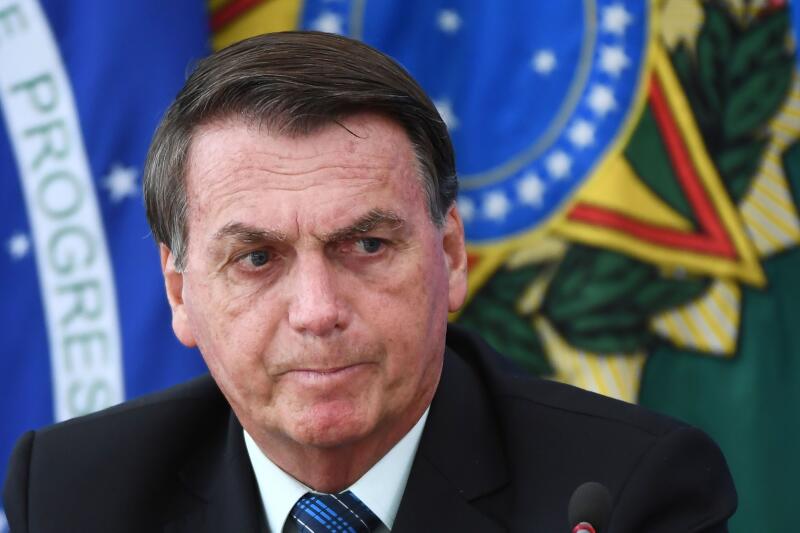President Bolsonaro further relaxes gun laws in Brazil
Sign up now: Get ST's newsletters delivered to your inbox

The four decrees increase the number of firearms Brazilians can own from four to six.
PHOTO: AFP
RIO DE JANEIRO (AFP) - President Jair Bolsonaro has issued a series of decrees further relaxing gun control laws in Brazil, one of the far-right leader's signature issues.
The four decrees, issued late on Friday (Feb 12), increase the number of firearms each Brazilian can own from four to six - or up to 60, for those who practice recreational sport shooting - and authorise them to carry up to two guns in public.
They also double the amount of ammunition that gun enthusiasts can buy for specially regulated weapons to 2,000 rounds per year, and scrap controls on access to specialised sharpshooter scopes, pre-20th-century firearms and ammunition up to 12.7mm in calibre.
Another decree eases licensing requirements for gun collectors, recreational marksmen and hunters, allowing them to obtain the required technical certificate from their gun clubs or shooting ranges.
Mr Bolsonaro, a former army captain, is an outspoken gun-rights advocate who regularly posts pictures on social media of himself at the shooting range.
He ran for office on a promise to arm "good people" to fight crime in Brazil, and regularly flashes his signature gun gesture - thumbs raised, index fingers pointing - to illustrate.
The new decrees were the latest of dozens relaxing gun laws that he has issued since taking office in 2019, though some have been overturned in Congress or the courts.
Gun-control advocates were sharply critical.
Mr Bolsonaro "has now published more than 30 decrees leading to a record increase in guns in circulation last year", said the Sou da Paz Institute.
"This flies in the face of all experts, who say more firearms in circulation in Brazil will lead to a tragedy in loss of lives and the deterioration of our democracy," it said.
Brazilian President Jair Bolsonaro on Friday sent a bill proposal to Congress that would alter how state fuel taxes are set, in order to reduce volatile pump prices following a threat by trucker drivers to strike over high diesel costs.
In a statement, Mr Bolsonaro's office said under the proposal, states would need to submit proposed ICMS tax rates on fuels to the National Fiscal Policy Council.
Any increase in the tax would go into effect only after 90 days to make the market more predictable, the statement said. Truck drivers had threatened to strike on Feb 1, but few followed through on the stoppage, following Mr Bolsonaro's remarks that he would take action to try to lower fuel prices.
The incident raised fears that Brazil may begin to intervene in how state-led oil firm Petroleo Brasileiro sets prices, as happened under previous governments. Reuters was first to report that Petrobras, as the state firm is known, had revised its pricing policy to track international parity over a 12-month period instead of every three months, feeding concerns of interference.
Petrobras, Mr Bolsonaro and other government officials have denied any interference in how the company sets fuel prices.


